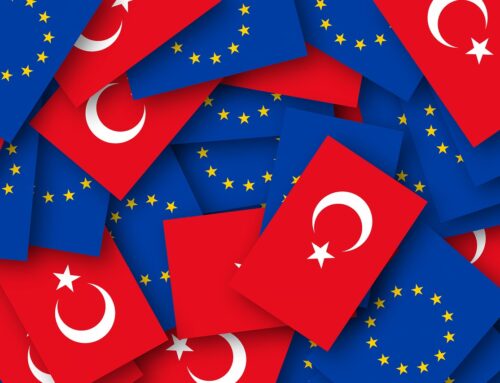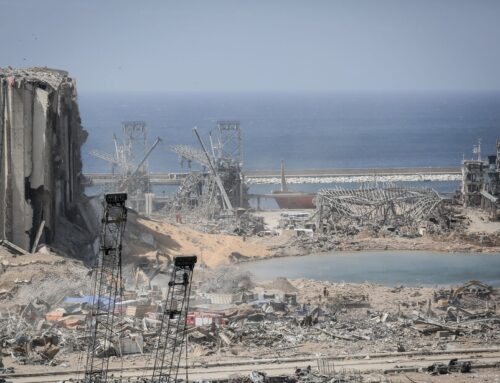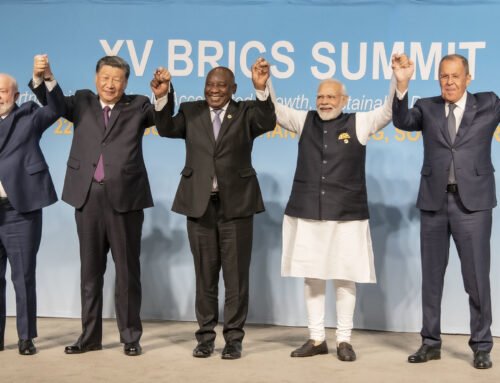kulig copy
Autor foto: Domena publiczna
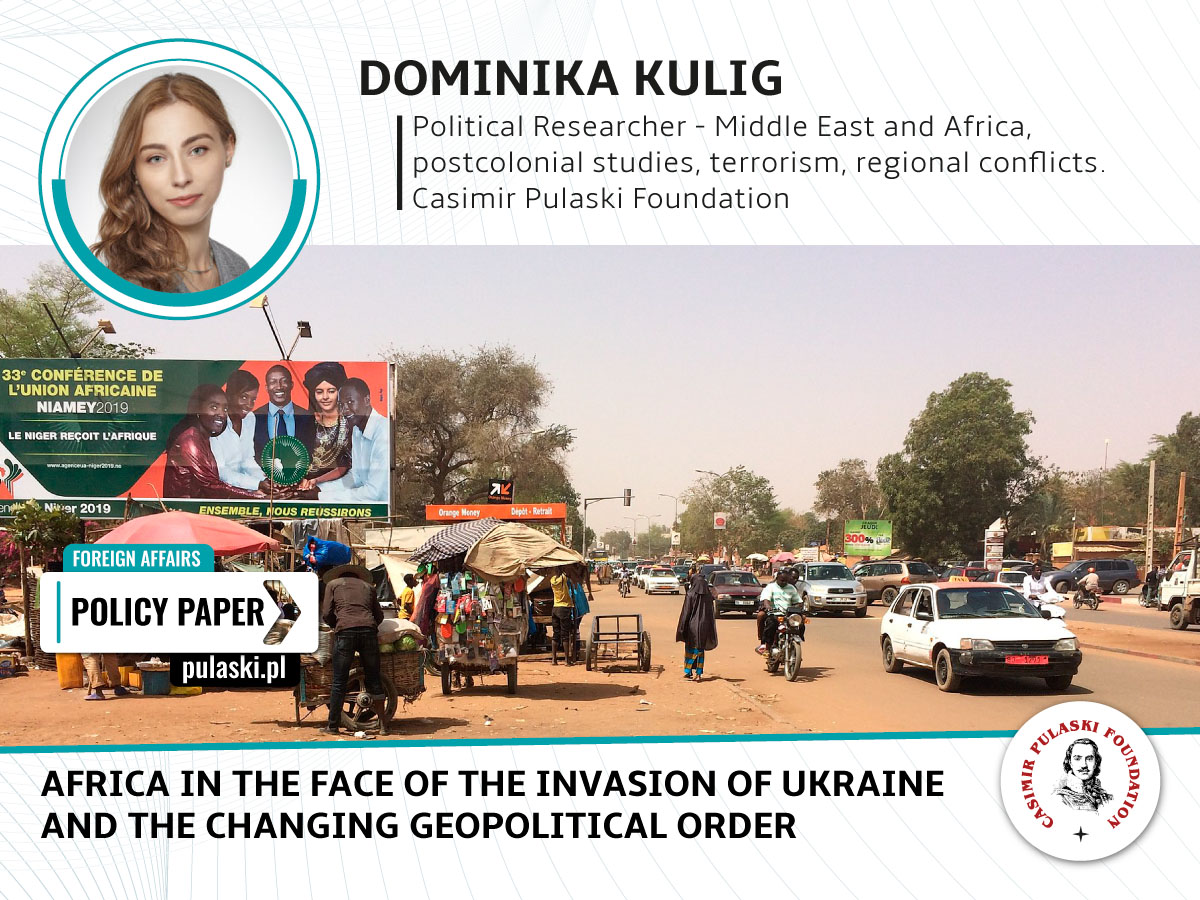
Africa in the face of the invasion of Ukraine and the changing geopolitical order
17 lutego, 2023
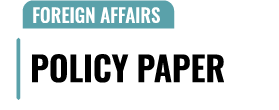

kulig copy
Autor foto: Domena publiczna
Africa in the face of the invasion of Ukraine and the changing geopolitical order
Autor: Dominika Kulig
Opublikowano: 17 lutego, 2023
Pulaski Policy Paper no 7, February 16, 2023
It will soon be a year since Russia invaded Ukraine. Since February 24, 2022, the question of the position of African states on this conflict remains suspended in space. It usually falls on the margins of Western debates, and when the issue is being raised the conclusions are (full of disapproval) diagnosis about the non-solidary character of Africa’s behaviour.[i] This belief was influenced especially by the vote at the United Nations forum concerning the condemnation of Russia’s aggression against Ukraine. In the first such vote, which took place in March 2022, only 28 out of 54 African countries supported the resolution, 17 abstained, 8 were absent, and one – Eritrea – voted against. The West is surprised that Africa does not take its side, because of the confidence that it always represents the right cause and gets the answer: „We don’t believe in being enemies of somebody’s enemy.”[ii] Meanwhile, the geopolitical order is undergoing transformations, and Africa itself is becoming a new arena of struggle for raw materials, which are of interest not only to Russia, but also to China, Turkey and Saudi Arabia.
Russian turf war
It will not be a great discovery to say that one of the main sources of the lack of opposition from African states to the invasion of Ukraine is Russian propaganda. On the African continent, it has been built not only in recent years, but from the very moment of decolonization and the start of the Cold War struggle for influence in the countries gaining independence. Historically, Russia has had great influence in countries such as Algeria and South Africa, where – in the times of Soviet Union – It tried to sell communism as the right development and ideological path for the countries regaining independence. At that time, it was an attractive counterbalance to the political systems proposed by the West, which appeared to be unfamiliar and prolonging European hegemony. From the beginning, the statehood of the post-colonial countries was built on the lack of trust in the political elites that emerged as a result of agreements with former metropolises, guaranteeing Europeans access to African raw materials on preferential terms in exchange for support for the African governments in favour of western interests. Politicians and their children were educated in Paris or London, and spent their holidays in European resorts, while corruption and nepotism were rampant in their homelands. Those who lost out from such an arrangement or saw it as a trap of neo-colonialism sought alternative allies, among whom at first Soviet Union and subsequently Russia could offer them a lot. Meanwhile, the Russian actions turned out to be nothing more than an alternative trap – just as dangerous, but more appealing to those who felt excluded. Russia began to invite leaders and military recruits to educate and train them in the Soviet spirit and under Soviet dictation, thereby expanding its sphere of influence.
The last years of Putin’s rule are marked by a reinforcement of thinking about Africa as an area worthy of interest. Already in 2014, during the vote at the UN after Russia violated Ukraine’s territorial integrity, many African states abstained from voting, as they did not want to unequivocally condemn Russian actions. At that time, Russia, which was subject to sanctions, decided to strengthen its operations in the African direction, which was to provide Russia with economic security, primarily through access to raw materials. Although trade with the African continent itself remained at a relatively low level, Russia became the supplier of a large percentage of arms and communication technologies, thanks to which its interference in African media and social platforms deepened. An expression of the new stage of cooperation was the Russian-African summit in Sochi in 2019, where agreements were concluded both with the African Union and bilaterally.
Currently, in order to strengthen its influence, Russia is working on many levels. Lavrov travels around African countries (he visited, among others, Egypt, Ethiopia and the Democratic Republic of the Congo, and recently South Africa),[iii] meeting with the leaders of countries affected by the food crisis and the effects of local conflicts, offering Russian help. Putin also provides support to governments and leaders who are isolated in various ways in the international and pan-African arenas due to human rights violations, involvement in violent conflicts or illegal activities. In addition to official channels (within which there were also the visits of leaders of such countries as Sudan to Moscow), Russia conducts its activities with the help of the already (in)famous Wagner Group, which is thriving in the Sahel, Libya and the Central African Republic (their presence has also been noted in Sudan, the Democratic Republic of the Congo, Zimbabwe, Botswana, Guinea, Burundi, and in the past in Mozambique). The consequences of this are clearly visible in Mali or recently – In Burkina Faso, where people took to the streets in the third week of January with Russian flags and portraits of Putin in their hands to demand the withdrawal of French troops from the country.[iv]This is where the activity of Russian mercenaries has recently been noted, who offer their services in exchange for access to the extraction of raw materials – including gold, which they monetize in the Gulf countries[v]. Thanks to this activity, the sanctions are not so burdensome for the Kremlin.
However, all of Russia’s efforts listed above would not have been so effective if other actors had not prepared fertile ground for them. Following the slightly generalising rhetoric adopted for this policy paper – the collective entity called “the West” should be indicated as the main of these actors.
Anti-colonial solidarity?
The debate on the approach of African countries to the invasion is largely based on the assumption that their colonial past should influence understanding of the difficult situation of Ukrainians, empathy for them and solidarity. After all, the invasion of Russia is nothing more than an expression of pure imperialism. Indeed, in academia and among the political elite, one can see a discussion about whether Africans should recognise Russia’s actions as another coloniser, or whether they should put their interests ahead of those they see as imposed by the West. However, this has not translated into general public opinion (which finds its outlet primarily in social media), which, despite the many contradictions of the Russian narrative, remains in its pro-Russian position. The basis for such reasoning are decades of built-up resentments towards the West, which – in the eyes of Africans – made him an actor completely unreliable. The best example of how great this resentment is the widely shared belief that NATO actually provoked Russia.
The basis of anti-western narrative consists of constant elements mainly referring to the involvement of the United States and European countries in Syria, Iraq, Libya, Afghanistan, Yemen and the Sahel. In retrospect, one can see that – for example – Syria was a testing ground for Russia before the invasion of Ukraine (it was also a place where Russia cooperated with France) and yet Syrians who lost their health or became displaced people were not welcomed as cordially in Europe as the Ukrainians. In line with the Russian propaganda, there are also scenes from the Ukrainian border where refugees from Ukraine were treated with warm soup and open arms, unless their skin colour indicated a different ethnic origin. Despite the fact that many Africans lived in Ukraine on a daily basis (a large group of them were students) and, just like other Ukrainians, were exposed to the loss of health and life, videos showing the brutality of the border guards against them circulated around the world. The conflict between the West and the countries of the South was exacerbated by Putin much earlier, while encouraging refugees from the Middle East and Africa to come to Europe and transporting them to the Belarusian-Polish border. Europe’s reactions proved that it was a bull’s-eye. The message that the African countries drew was simple – there is no question of solidarity, because in Europe we will always be treated inferiorly.
The double standards of the West are also visible in the case of support for the Israeli side in the Israeli-Palestinian conflict, which in most post-colonial countries is an expression of the long duration of Western colonialism. Despite the fact that international organisations explicitly refer to Israel’s policies as apartheid, it constantly receives financial support from the United States, which turns a blind eye to violations of Palestinian rights, brutal forced evictions and killings – including of civilians and even journalist (as in the case of Shireen Abu Akleh).[vi] In the African media, especially the Arab ones, there is a question circulating why a Ukrainian killing a Russian is a hero and a Palestinian throwing a stone at a well-armed Israeli soldier is a terrorist. Moreover, four Palestinian organisations are on the US list of organisations designated as terrorists. The issue of Israel’s lack of commitment to supporting Ukraine doesn’t make things look better. Although the US has recently been trying to exert influence on Israel (for example, it managed to reach an agreement on the transfer of 300,000 artillery shells stored in Israel – but American – to Ukraine), Israel itself has not been involved in helping Ukraine, and its new, far-right government, which recently took power, seems to be looking only at its own strictly understood interests. This does not make it easier for the West to fight the image of a biased actor who adheres to his values only when it is convenient for him. Meanwhile, even China, which so far has not been involved in political issues in Africa or the Middle East, referred to the Palestinian issue during its last visit to Egypt in January this year.[vii]
While we should be careful not to victimise too much, one can say that in this sense Ukraine has become a victim of two colonialisms – direct Russian and indirectly Western, because the animosity on the part of African states is de facto directed not at it, but at the former metropolises and intervention policy of the United States.
A new wave of colonization
Currently, we are dealing with a moment when two concepts of modernity – universalism and globalisation – are being revised. While the myth of the first one is collapsing before our eyes, the second one is growing stronger despite the increasingly visible side effects. This process runs parallel to a profound geopolitical shift. It is usually noticed by Western opinion makers, but only in the context of the invasion of Ukraine or the US-Chinese rivalry. Traditionally, Africa is on the margins of the Western imagination and debate, although there are many indications that Africa, through its demographics and resources, will be one of the central areas of change radiating to other regions.
However, there is no indication that time to come will be a time of strengthening autonomy for Africa. On the contrary, it is a period of a new wave of neo-colonialism driven by the desire to acquire raw materials, of which the continent has a lot. The previous colonizers – who, despite formal decolonisation, maintained political, financial and military dependencies for years (at the same time strengthening the image of a coloniser-Western state) – are now being replaced by new actors, such as Russia, China, Saudi Arabia and Turkey.
Although the former metropolises are trying to point out that they have not yet said the last word, their position in relation to the new actors is already lost. Resentments in African societies are fuelled by political and economic destabilisation, which arouses anger and often leads to radicalisation. Blaming the West for failures is also a very convenient tool in the hands of Russia as well as in the hands of African rulers or leaders of fundamentalist groups, the more effective the West gives reasons for it. This is the case, for example, where Western companies monopolise local markets at the expense of local people and their environment. An example of this is the activity of the French company TotalEnergies in Mozambique, as a result of which the local population lost access to the previous source of income, which was fishing.[viii] There are many stories like this across Africa, and the perpetrators of wrongdoing face no consequences. What’s more, the political elites, which have ruled so far with the support of the old metropolises, are overthrown by military juntas (recently we can observe this especially in the Sahel), which quickly find alternative protectors in new empires, represented by mercenaries. Every expression of social dissatisfaction and grassroots or military opposition movements is an opportunity for them to quickly seize influence.
Along with the weakening of the former metropolises and the emergence of new aspiring powers that would like to re-evaluate the world order, the United States also realised that in the current situation it is necessary to take the initiative to strengthen American-African relations, which was expressed during the US-African Leaders Summit (December 13-15, 2022). One of the main topics of the talks was the strengthening of private sector cooperation. While it is important for the US for practical reasons, it must be conditioned by diligent environmental research and well-thought-out implementation in order to minimize the destabilizing impact of new foreign investments on the African continent, as was the case with the above-mentioned Mozambique. Otherwise, the African economy will become more dependent on it and anti-Western sentiments will grow, which in the long run will bring more harm than good.
The new/old path for Africa
60 years ago, when a new geopolitical order was taking shape, the countries of the Global South started The Non-Aligned Movement (NAM), which advocated not getting involved with either side of the Cold War. Its goal was to remain neutral towards the powers trying to compete for spheres of influence. Although practice has shown that remaining neutral has worked at best only in theory, echoes of this concept still justify refraining from taking a position on what is perceived as a struggle for influence of the superpowers. The countries of the Global North, which, due to their position, developed in a different political context, currently find it more difficult to understand such an approach. Especially those that – like Poland – were in the very centre of this rivalry.
On the other hand, as the political context changes, Africa must find its place in the new geopolitical world order and cannot continue the old narratives. The fact that they are aware of this is increasingly evident in the statements of its leaders. During the US-Africa Leaders’ Summit in December (2022), it became very clear that the current state of affairs is an expression of objection against imposing African countries to cut themselves off from superpowers such as Russia or China.
As it has been mentioned before, the new wave of colonialism is based primarily on the perception of the African continent as a resource of raw materials that can and should be developed. In connection with the sudden disruption of energy security related to the invasion of Ukraine, much is said about the opportunity for Africa, which, thanks to its resources, can strengthen both Europe and itself. In fact, it’s not that simple, and the opportunities are no greater than the risks. Although Nigeria and Algeria, themselves striving for the position of regional powers, appear to be potential sources of oil and gas for Europe, despite the extensive resources, they do not have the appropriate infrastructure that would enable their effective distribution. Creating such a system would require large expenditures (potentially foreign, which would once again weaken independence) and political and military stabilisation, which currently seems to be an unrealistic postulate.
Restoring relations
In order to weaken the reach of Russian propaganda in Africa, it is necessary to convince it that alliances with Russia in the long run will not pay off. It will not be easy in an area with dozens of problems requiring solutions in the shortest run possible, especially when Russia offers easy and attractive solutions. But if the West does not make efforts to regain the trust of post-colonial countries it will be almost impossible. Blaming Russia, while justified, will not be of much use, nor will be accusing Africa of lack of rationality or lack of goodwill. This does not mean that Europe and the US should abandon efforts to counter propaganda – through well-thought-out information campaigns showing the real effects of the Russian invasion and the dangers of working with Russian authorities and mercenaries. Ukraine itself, despite being busy with military operations, is trying to counter the Russian narrative and strengthen relations in the African direction. Ten new embassies in Africa are scheduled to open in 2023. However, it is worth noting and emphasising that Ukraine itself in this context often remains a minor actor. It is not at her that the blade of criticism and resentment is directed. Because of this, it is up to the West to look at the revaluation of its relations with Africa as an indirect but significant aid to Ukraine.
Having said all this, it is hard to imagine a change in the attitudes of the African countries if the West continues to take actions that deepen the perception of hypocrisy and double standards. A threat to the improvement of relations is also the patronising language, which evokes negative emotions both among the civilians and political circles.[ix] Although those changes have potential only in the long run, the sooner one start implementing them, the sooner one can start to expect visible effects. The existence of resentments was known for a long time, but earlier there was no effort to embrace them and try to work through them. Further disregard for them will lead to deepening antagonisms. And although in the end, even without the efforts of the West, Russia will also be recognised as an imperialist, before that happens, the continent will be increasingly affected by the effects of dependence and political instability, which is very much in Russia’s favour.
Conclusions
- Despite the long period that has passed since the decolonisation of African countries, the continent is still an area of struggle for the influence of superpowers (as well as aspiring superpowers) due to the fact that the former metropolises, formally leaving the colonies, established a number of dependencies to take care of their interests. As a consequence, it weakened local governments and destabilised the political system, while deepening distrust of countries perceived as „the West” (i.e. primarily the United States and former European colonial metropolises).
- In African countries, Russia’s invasion of Ukraine was not met with such harsh and widespread condemnation as in the countries of the Global North. The direct reason for this state of affairs is the long-term construction of the propaganda narrative about Russia as a friendly alternative to the imperialistic and hypocritical West. This narrative has caught on to such an extent that it currently has a very large impact on public opinion, which has more trust in it than in the belief that, due to its colonial past, it should show solidarity with Ukraine. In this scenario, strong support for Ukraine from the West makes her a Western ally and thus an object unworthy of sympathy. The power of the narrative is so far-reaching that even the food crisis caused by Russia’s aggression is perceived not as Russia’s fault, but as the fault of the West, which imposed sanctions on it.
- Thus, in the global politics of the recent period, the essence of the narrative is revealed. We see that despite the fact that China or Russia commit human rights violations and display racist behaviour, their characters are not identified with colonisation to the same extent as Western countries, and sometimes they are even treated as saviours, because their characters are not identified with colonisation in such a way as much as Western countries.
- The success of the Russian narrative is related to the political context created by the West over the last decades, which has led to the strengthening of postcolonial resentments and distrust. Among the phenomena that led to this, one can mention: support for chosen African elites, despite the lack of legitimacy from a local society (also the one who do not respect democratic principles but favour Western interests); support for foreign business and investment in Africa without respect for the rights of the local population; conducting ineffective interventions justified by the need for security and development, which strengthen local conflicts and deepen destabilisation; inconsistent migration policy leading to a sense of injustice. All these factors are both causes of vulnerability to radicalisation, weakening of African political systems and destabilisation of the continent.
- When considering the approach of African countries and their potential change, the disintegration of the idea of universalism should be taken into account – it should induce researchers and decision makers to take into account different political contexts that imply a different view of the international order. As part of this, the political history of the continent can be taken into account, and the very fact that Western countries, even in the face of sanctions, have the means to make them more comfortable in making political decisions in line with what is perceived as an ethical and moral choice. Also, the consequences of the invasion of Ukraine are and will be different for both areas. That is why it is important to provide reliable information about the actual actions of Russia, which at the same time will not be patronising and biased.
- We are currently witnessing a new wave of neo-colonialism based on a struggle (also military, although private military companies take the place of the army) for influence on the African continent that is directly related to access to raw materials, which – as a result of economic crises and the war in Ukraine – are increasing demand all the time. It is most often referred to as a development opportunity for Africa, although there are many indications that it carries more threats than opportunities.
- African countries have recently shown that they will strive to re-evaluate their existing bi- and multilateral relations, and pressure from the West to stop cooperation with other powers (especially Russia and China) is perceived as another attempt to interfere and impose their opinion on them. It has become very clear that the West, also for the benefit of Ukraine, must re-evaluate the way it perceives and talks to African countries and recognise that its position is no longer privileged. However, this does not remove all responsibility from African leaders, who, demanding more autonomy, take more responsibility for their decisions.
Author: Dominika Kulig, Casimir Pulaski Foundation
The Paper was prepared in cooperation with International Centre for Ukrainian Victory
[i] For the purpose of this policy paper, due to the extensiveness of the subject and the possibility of capturing only an outline of the issues in this format, the author adopts a generalized view of the entire continent as a subject showing common tendencies, but it should be kept in mind that Africa is not a political monolith.
[ii] Words of Ugandan President Yoweri Museveni – https://foreignpolicy.com/2022/12/02/biden-africa-summit-china-geopolitics/?utm_source=PostUp&utm_medium=email&utm_campaign=Editors%20Picks%20OC&utm_term=59334&tpcc=Editors%20Picks%20OC.
[iii] South Africa occupies a special place in this context because, together with Russia, it is the member of the BRICS group, which brings together growing economies – Brazil, Russia, India, China and South Africa, from which the first letters of the group take its name. The main goal of the group is to reform the UN and the global monetary system.
[iv] French troops engaged in the Sahel in 2014 as part of the anti-terrorist operation „Barkhane”, which lasted until November 2022, but after that time France left part of its forces in Burkina Faso.
[v] More about the situation in the Sahel region: https://pulaski.pl/pulaski-policy-paper-the-decay-of-the-security-structure-in-the-sahel-dominika-kulig/.
[vi] The U.S. State Department has released a statement saying it cannot say for sure who killed the journalist, but it is highly likely that the bullet belonged to IDF soldiers. The assumption that the shot was unintentional met with skepticism from international opinion (including the UN), and Israel itself did not cooperate in creating a credible investigation.
[vii] From China’s perspective, good relations with Egypt are important to have access to transport via Suez.
[viii] In this case feelings of injustice among the local population set the stage for the development of fundamentalist propaganda, leading to the Islamist insurgency in 2020.
[ix] Recent examples: https://www.cbsnews.com/news/germany-russia-africa-tweet-leopard-tanks-emoji-apology/ .




